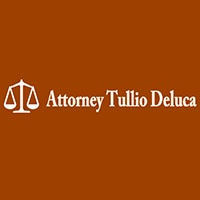Jackson Bankruptcy & Debt Lawyer, Pennsylvania
Tullio DeLuca
✓ VERIFIEDBankruptcy & Debt, Accident & Injury, Divorce & Family Law, Employment, Estate
Tullio DeLuca was admitted to bar in 1990 in Pennsylvania, US District Court, Middle, Eastern and Western Districts of Pennsylvania. Attorney DeLuca r... (more)
Brett Michael Freeman
✓ VERIFIEDConsumer Protection, Consumer Bankruptcy, Litigation
Attorney Brett Freeman has devoted his career to helping those who are having financial difficulties, and to making sure that those individuals are tr... (more)
Molly Dempsey Clark
Election & Political, Family Law, Business Organization, Collection
Status: In Good Standing
Eugene James Doud
Divorce & Family Law, Bankruptcy & Debt
Status: In Good Standing Licensed: 44 Years
Joseph M. Campolieto
Government, Divorce & Family Law, Business, Bankruptcy & Debt
Status: In Good Standing Licensed: 31 Years
Joseph Nicholas Demko
Litigation, Lawsuit & Dispute, Business, Bankruptcy & Debt
Status: In Good Standing
Joan Lednovich
Deportation, Child Support, Insurance, Credit & Debt
Status: In Good Standing Licensed: 34 Years
John Leonidas Tidball
Land Use & Zoning, Divorce & Family Law, Criminal, Collection
Status: In Good Standing Licensed: 25 Years
Robert Peter Sheils
Real Estate, Business, Bankruptcy & Debt
Status: In Good Standing Licensed: 54 Years



